The department of Computer Science & Engineering presently offers undergraduate (B.Tech) study program. The curriculum of Computer Science & Engineering covers all software & related hardware part of computing as per Chhattisgarh Swami Vivekananda Technical University, Bhilai (CSVTU) syllabus with its cohesive team of faculty members. The institute develops professionals who have good knowledge of latest technology which are viable in the market and necessary for the basic concept and advance research such as Programming, Computer Network, Artificial Intelligence, Cryptography, Compiler Design, Computer Graphics, Data Mining & Ware Housing etc. Computer Science & and Engineering Department has a unique blend of faculty and facilities that offers students a rare opportunity to do research and learn Computer Science in new collaborative ways.
The Department of Computer Science and Engineering was started in the year 2008 and has a set of well qualified and experienced faculty with state of the art laboratories to meet the quality education required for present challenging social and industrial needs. The department takes initiative in conducting co-curricular and extracurricular activities along with the academics. Core facilities such as fully fledged common computer center, internet lab, seminar halls, library, and audio & video exhibits are available in the department to give the academic program the required thrust.
To produce value based quality Engineers with the knowledge of latest trends and research technologies to meet the developing needs of industry and society.


| PO1:Engineering Knowledge | Apply the knowledge of mathematics, science, engineering fundamentals, and an engineering specialization to the solution of complex engineering problems. |
| PO2:Problem Analysis | Identify, formulate, research literature, and analyze complex engineering problems reaching substantiated conclusions using first principles of mathematics, natural sciences, and engineering sciences. |
| PO3:Design & Development of Solutions | Design solutions for complex engineering problems and design system components or processes that meet the specified needs with appropriate consideration for the public health and safety, and the cultural, societal, and environmental considerations. |
| PO4:Investigations of Complex Problems | Use research-based knowledge and research methods including design of experiments, analysis,and interpretation of data, and synthesis of the information to provide valid conclusions. |
| PO5:Modern Tool Usage | Create, select, and apply appropriate techniques, resources, and modern engineering and IT tools including prediction and modeling to complex engineering activities with an understanding of the limitations. |
| PO6:Engineer and Society | Apply reasoning informed by the contextual knowledge to assess societal, health, safety, legal and cultural issues and the consequent responsibilities relevant to the professional engineering practice. |
| PO7:Environment and Sustainability | Understand the impact of the professional engineering solutions in societal and environmental contexts, and demonstrate the knowledge of, and need for sustainable development. |
| PO8:Ethics | Apply ethical principles and commit to professional ethics and responsibilities and norms of the engineering practice. |
| PO9:Individual and Team Work | Function effectively as an individual, and as a member or leader in diverse teams, and in multidisciplinary settings. |
| PO10:Communication | Communicate effectively on complex engineering activities with the engineering community and with society at large, such as, being able to comprehend and write effective reports and design documentation, make effective presentations, and give and receive clear instructions. |
| PO11:Project Management and Finance | Demonstrate knowledge and understanding of the engineering and management principles and apply these to one’s own work, as a member and leader in a team, to manage projects and in multidisciplinary environments. |
| PO12:Life-long Learning | Recognize the need for, and have the preparation and ability to engage in independent and life-long learning in the broadest context of technological change. |
| PSO1 | Specify, design, develop, test and manage reliable and efficient application software systems that uses SDLC(Software Development Life Cycle) principles as per user requirements on the required platforms including Desktop, Mobile, Distributed and Network environments. |
| PSO2 | Understand the architecture and design of Digital Computers including multi-core processors. |
| PSO3 | Understand the design and use of System Softwares and packages including Compilers, Operating Systems, Database Management Systems and Soft Computing tools. |
| PEO1 | Specify, design, develop, test and maintain usable software systems that behave reliably and efficiently and satisfy all the requirements that customers have defined for them. |
| PEO2 | Develop software systems that would perform tasks related to Research, Education and Training and/or E-governance. |
| PEO3 | Work in a team using common tools and environment to achieve project objectives. |
Presently the department has laboratories with central air-conditioning, UPS and special furniture for computer users. Each lab has been designed to accommodate 60 students per session and has been equipped with the state of the art computer systems, consisting of a total of about 180 Computers, with all necessary peripherals.
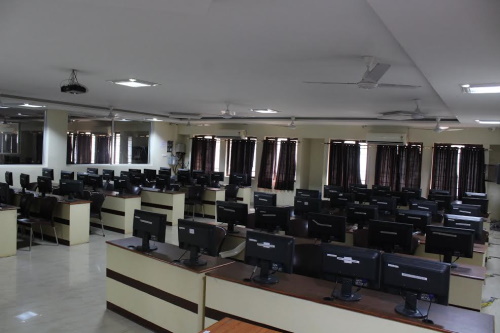
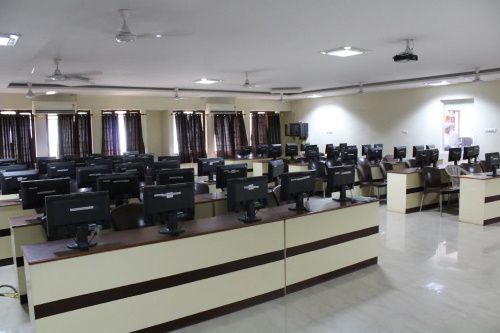

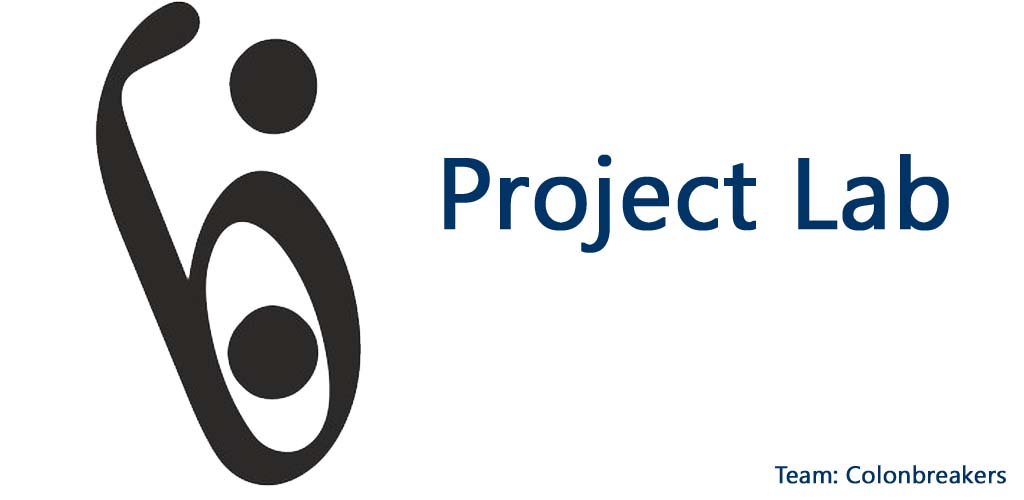
CSA, an acronym for Computer Science Association is the disciplinary association for the Department of Computer Science & Engineering at SSIPMT, Raipur. It was formed in the year 2011. CSA stands as a powerful learning platform with substantial inflow of senior guidance and mentorship. The association has an open nature, thus allowing the convergence of Computer Science enthusiasts from all streams of study. CSA is well-known for organizing series of lectures and talks on various emerging technologies, quizzing, coding and sports events around the year. We are also conduct seminars and workshops on up-coming technologies like IOT, Microsoft Windows Phone-8, Cyber Security, Android, PHP, etc.
The basic aim and objective of this association is to promote scientific and educational activities towards the advancement of theory and practice of Computer Science apart from regular curriculum. CSA always provides opportunity to students to improve their overall personality such as:
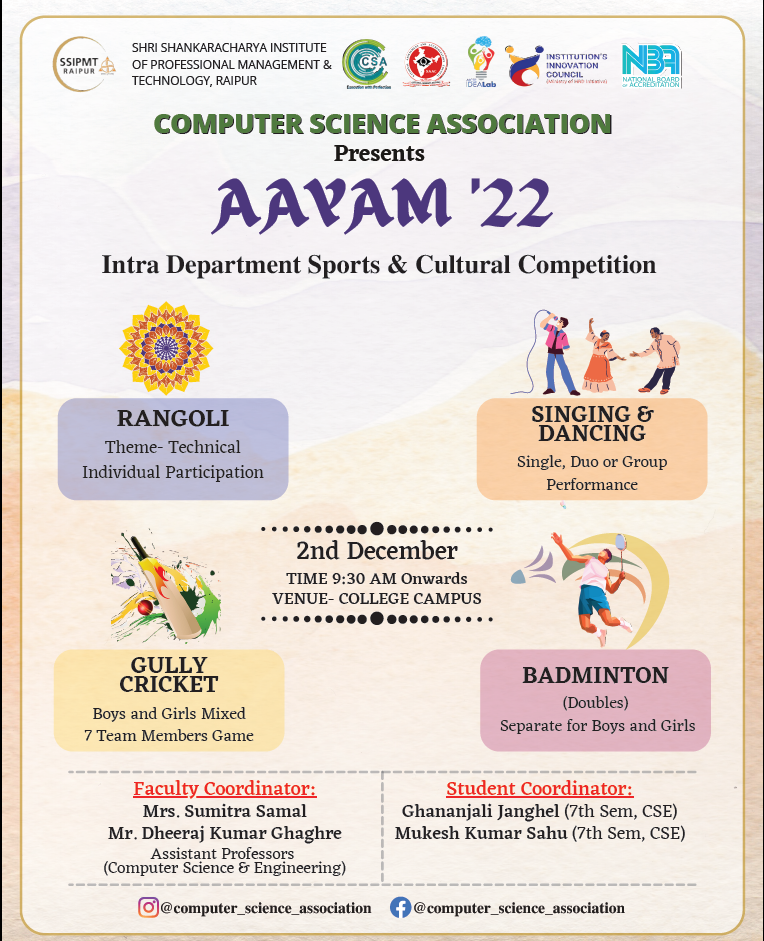
| S. No. | Academic Year | Publication Details |
|---|---|---|
| 1 | 2014-2015, 2015-2016, 2016-2017 | Click Here |
| 2 | 2017-2018 | Click Here |
| 3 | 2018-2019 | Click Here |
| 4 | 2019-2020 | Click Here |
| 5 | 2020-2021 | Click Here |
| S. No. | Faculty Name | Publication Details |
|---|---|---|
| 1 | Mr. Abhishek Kumar Saw | Click Here |
| 2 | Mr. Anand Tamrakar | Click Here |
| 3 | Mr. Ashish Pandey | Click Here |
| 4 | Mr. Deepak Rao Khadatkar | Click Here |
| 5 | Dr. JP Patra | Click Here |
| 6 | Ms. Kaveri Kar | Click Here |
| 7 | Mr. Prakash Sahu | Click Here |
| 8 | Mrs. Preeti Tuli | Click Here |
| 9 | Ms. Shraddha Taunk | Click Here |
| 10 | Mrs. Sumitra Samal | Click Here |
| 11 | Ms. Taniya Jain | Click Here |
| 12 | Mr. Yogesh Kumar Rathore | Click Here |












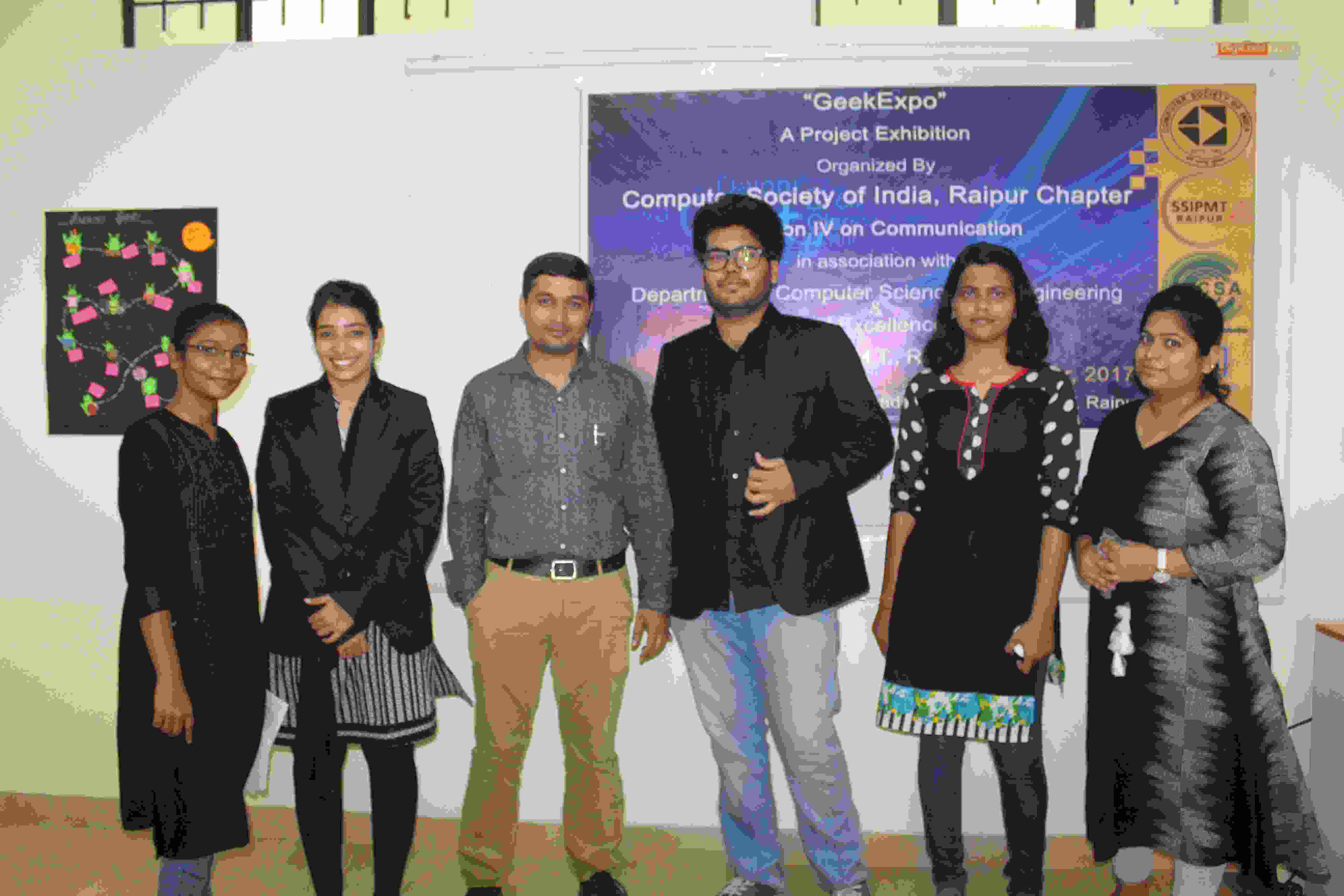

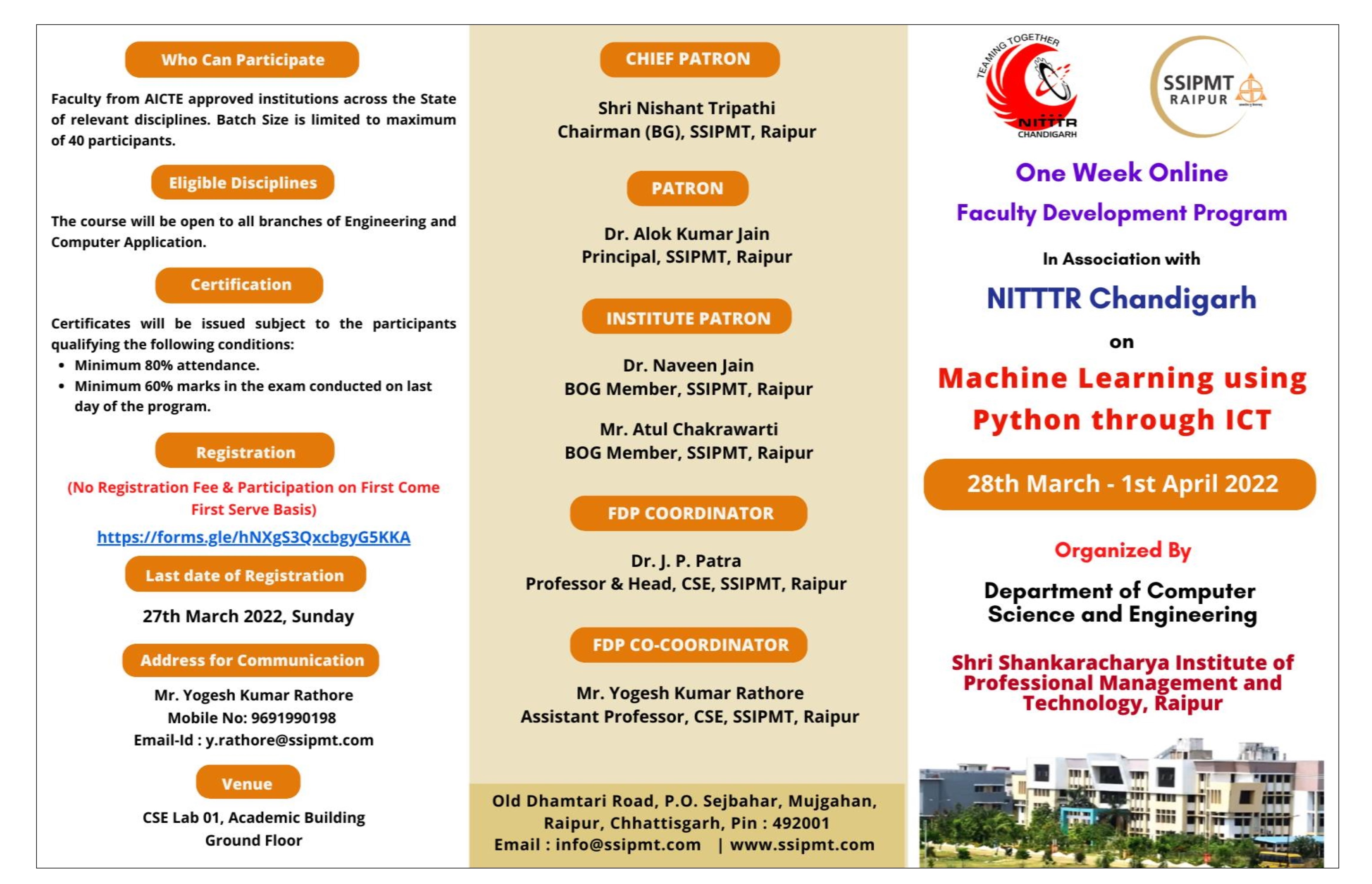
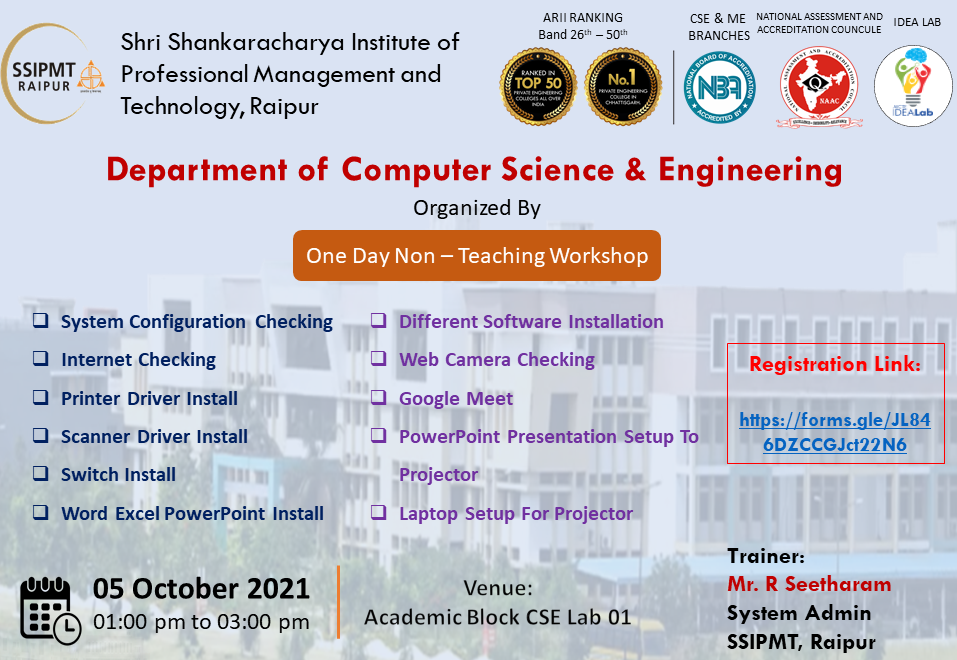
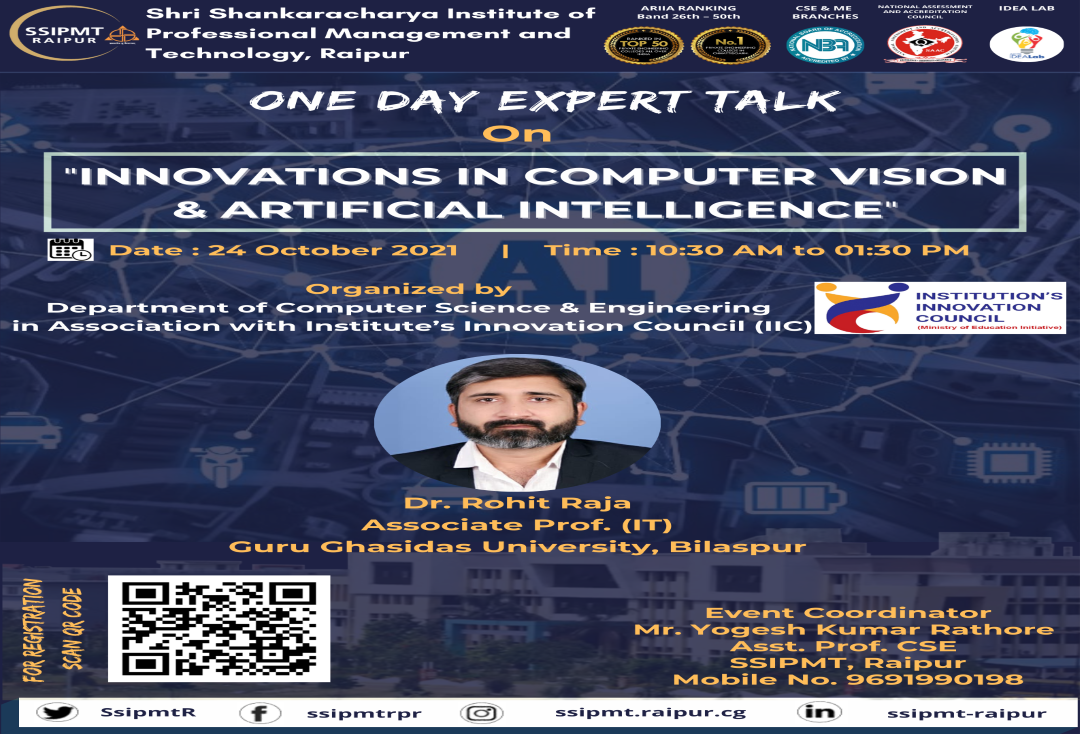
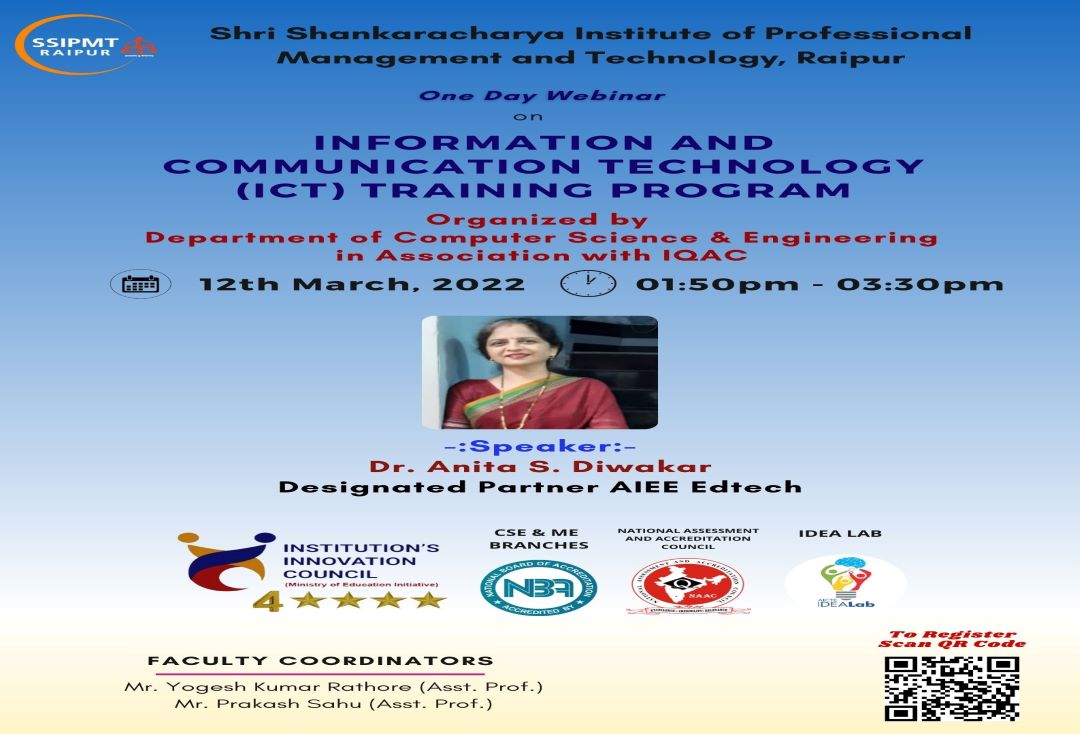
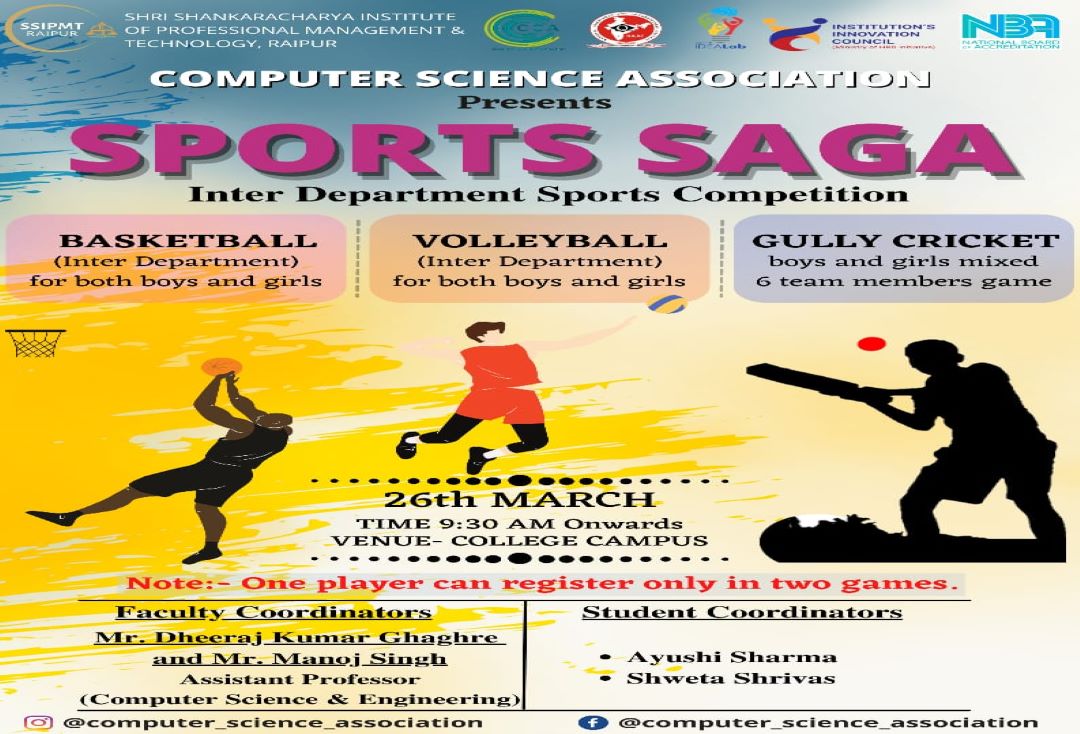
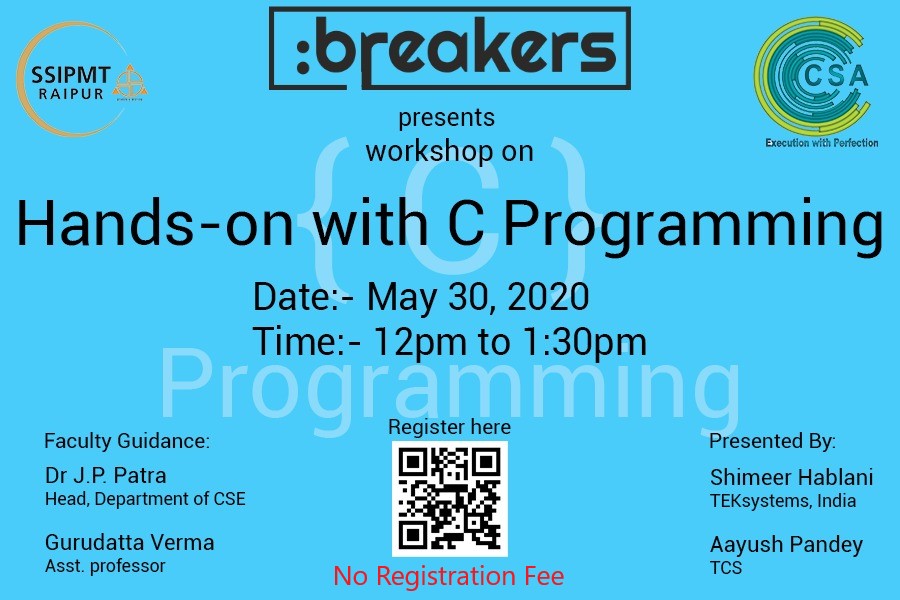
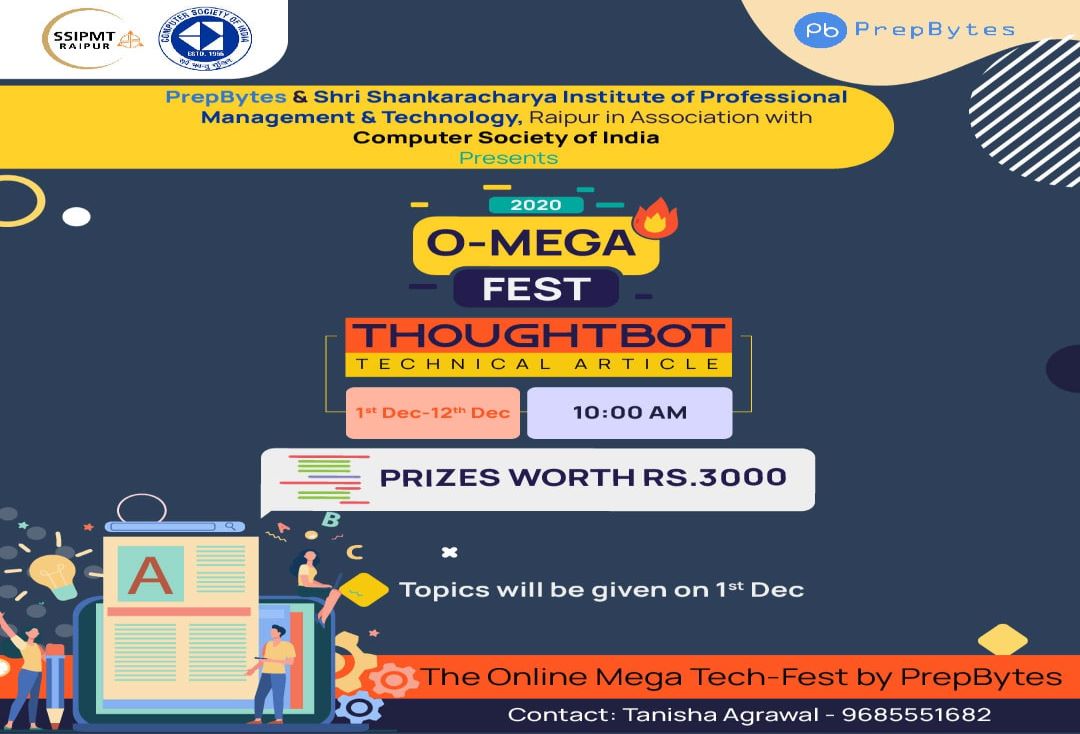
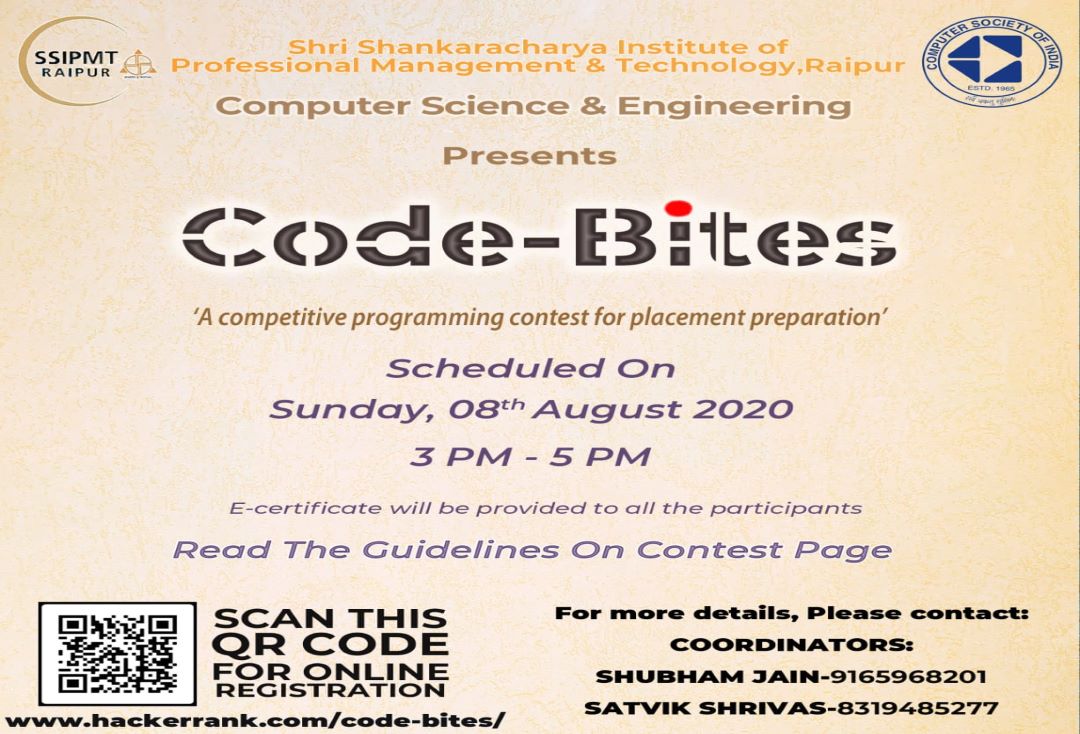
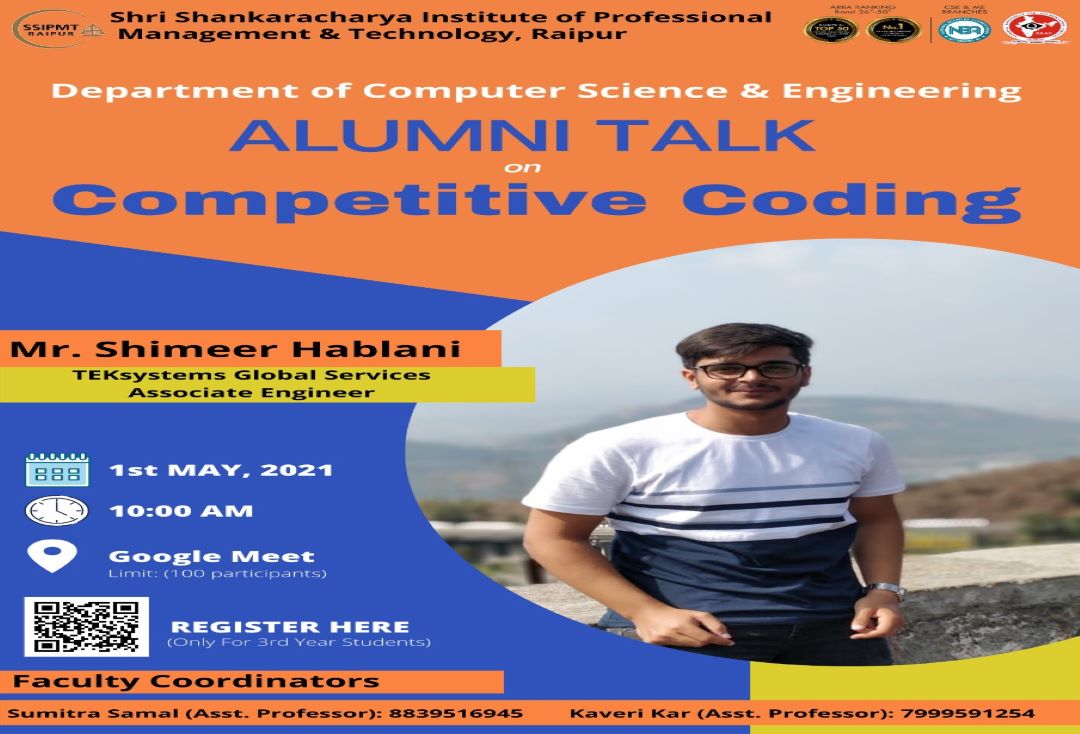
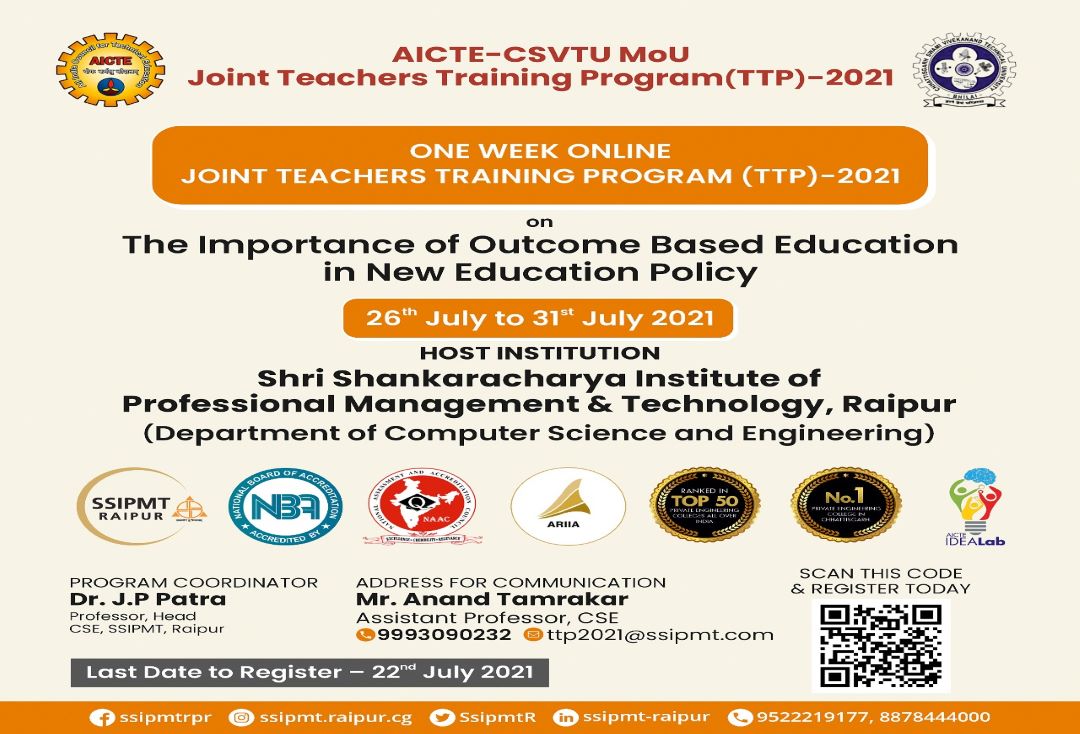
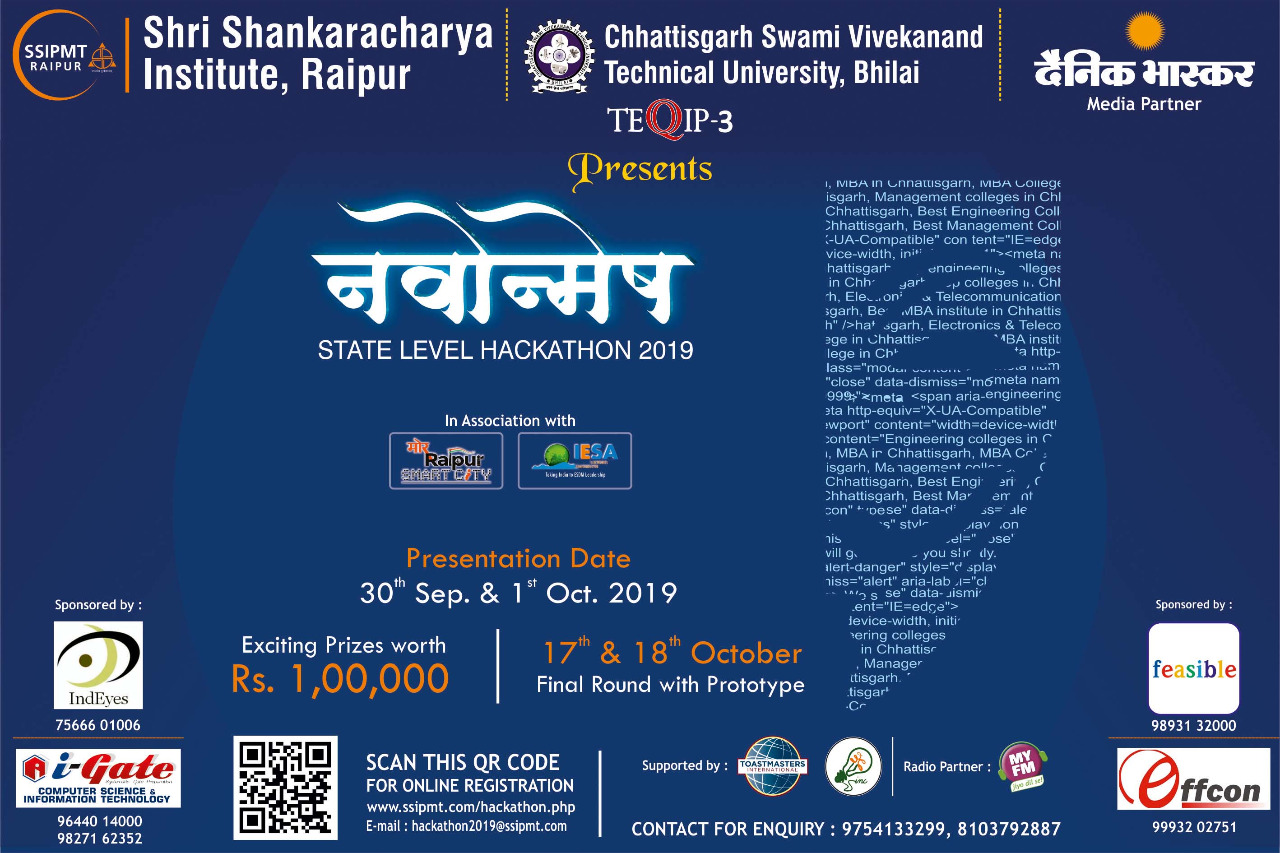




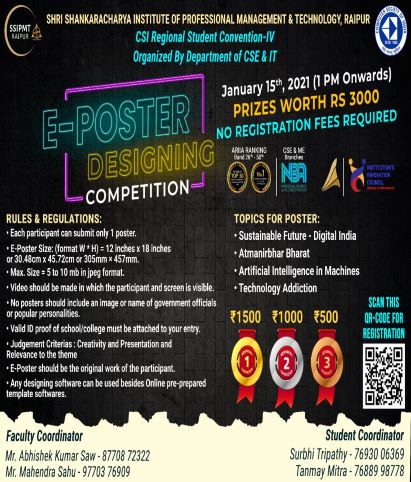

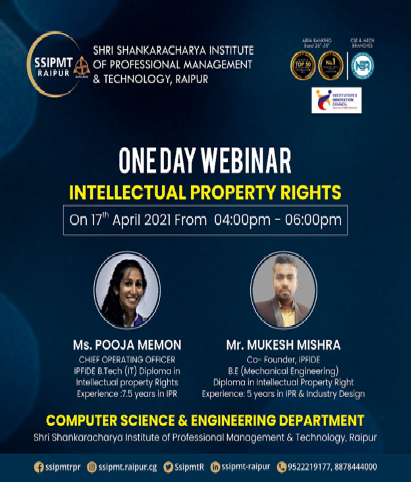
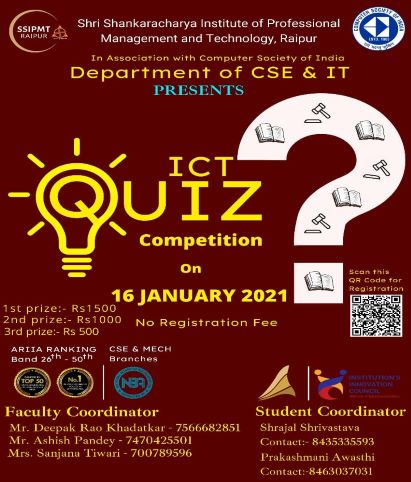
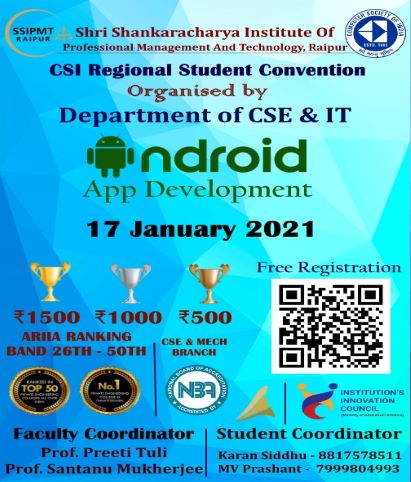
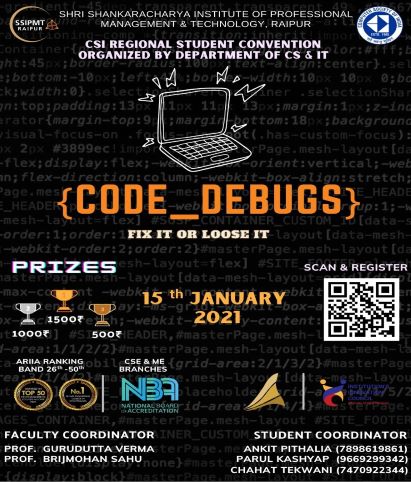
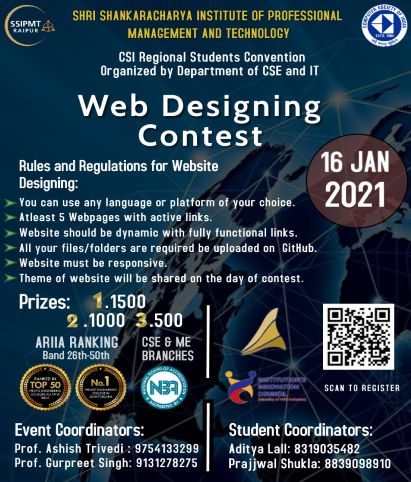
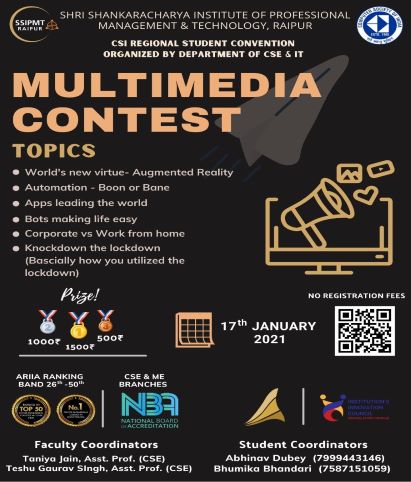
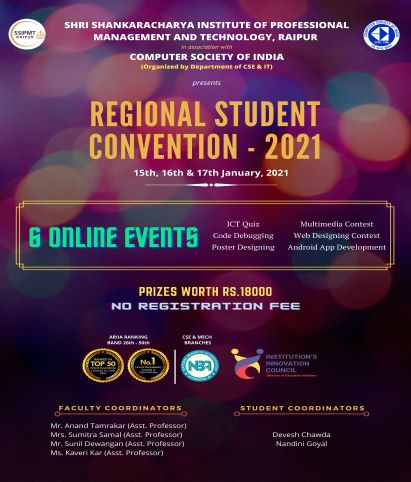
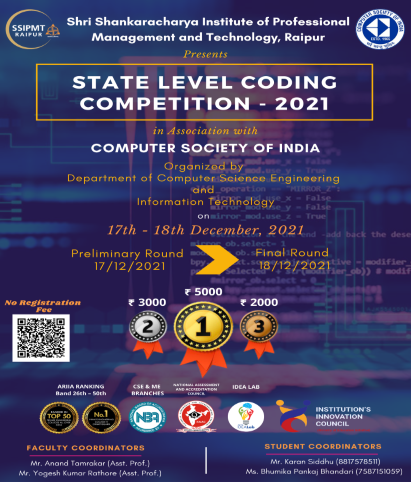
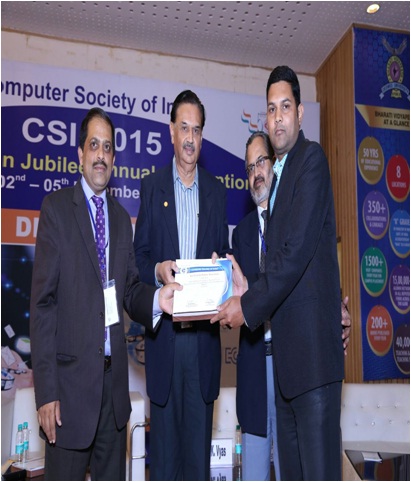
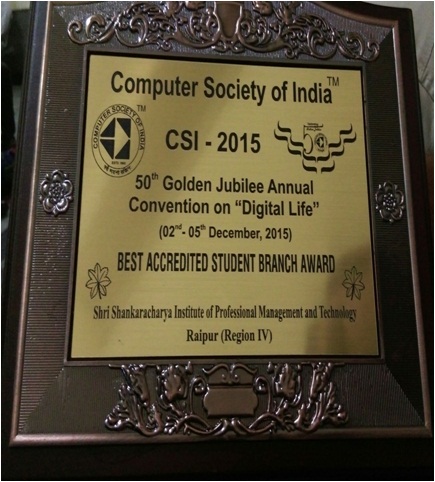
The Research & Development (R & D) Cell facilitates and encourages research culture among the faculty and students. Its prime role is to create contacts with the real world and promote research through a range of publications. It enables a congenial environment for technological development and monitors the research activities of the college. The R&D Cell takes upon the responsibility of creating a work place to attract the best talent and strives continuously in pooling of skills and internal resources, creating strategy, overcoming limitations, and makes the College proud to be amongst the best institutions around the Globe. It encourages the students and faculty to undertake the research in newly emerging frontier areas of Engineering, Technology, Science and Humanities including multidisciplinary fields. This enhances the general research capability of budding technocrats by way of participating in conferences, seminars, workshops, project competition, etc.